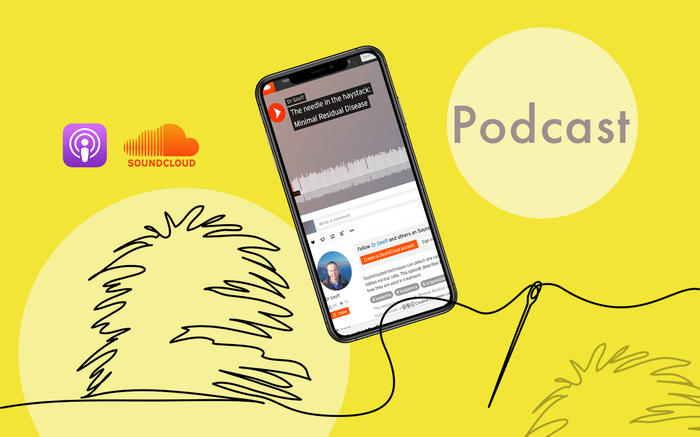
News | Events

Dr Geoff describes how hidden cancer cells can be detected in his latest podcast about Minimal Residual Disease, known as MRD.
Minimal Residual Disease is the small number of cancer cells that may remain in a person during treatment, but which can’t be detected with scans or the microscope. These cancer cells are usually hidden among millions of normal cells, and can be undetectable by conventional methods, so sophisticated techniques are required to discover them.
Who can benefit from MRD testing? In the podcast Dr Geoff points out that research can potentially extend the benefits of MRD testing beyond its current uses saying:
“Minimal Residual Disease is most relevant these days for the care of children and adults with leukaemia and lymphoma, and in particular for acute lymphoblastic leukaemia, but it’s probably going to have a place in more and more diseases including some solid tumours.”
It is important to detect MRD because remaining cancer cells can become active and multiply, increasing the risk of a relapse in the patient, which can often be more difficult to treat.
But what are the techniques used to detect MRD and how are they used in treatment? Find out more in The needle in the haystack: Minimal Residual Disease episode on:
Listen to the Understanding Childhood Cancer with Dr Geoff podcast where you can choose from over 70 episodes on a variety of topics spoken in plain English.
Dr Geoff is Associate Professor Geoffrey McCowage, a Senior Paediatric Oncologist at The Children’s Hospital at Westmead. His podcast episodes can be downloaded free and are in everyday language for people interested in understanding childhood cancer and its treatments.
